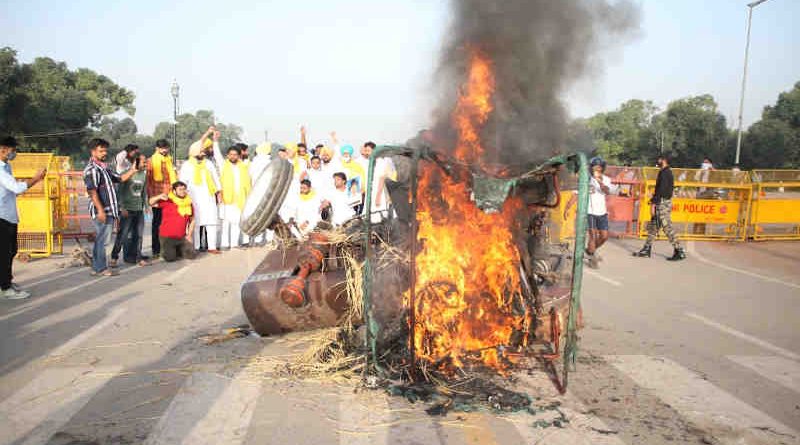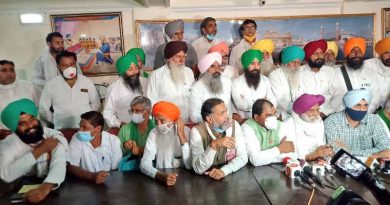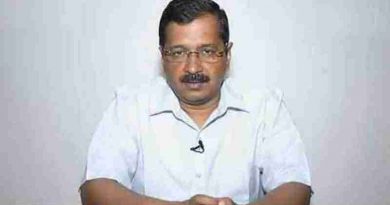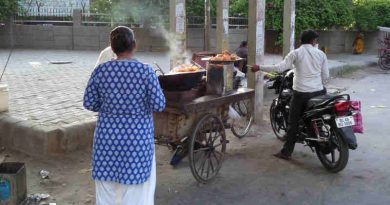Supreme Court Seeks Govt Response on Farm Laws
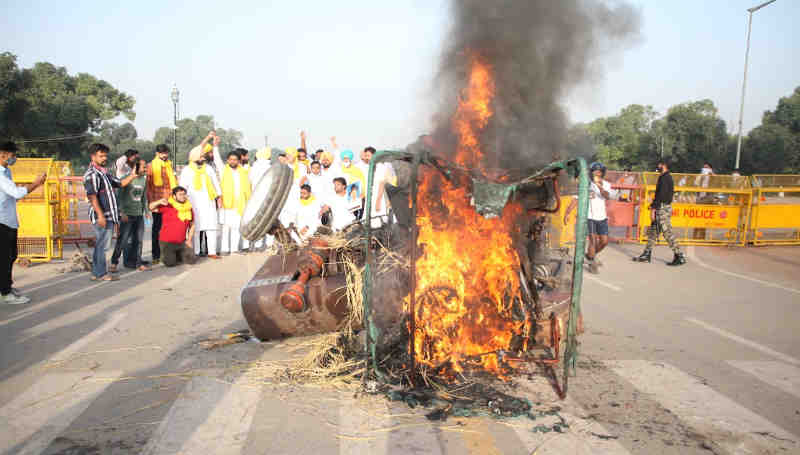
It has been seen during the past few years that the Supreme Court and other courts in India do not take any decision that can displease the Modi government.
By Rakesh Raman
The Supreme Court of India today (October 12) asked the Central government of PM Narendra Modi to respond to a slew of petitions filed against the new farm laws that have triggered nationwide protests.
The top court’s order came during the hearing of petitions by DMK parliamentarian Trichy Siva and three others, who have challenged the constitutional validity of the farm laws.
The farmer unions across the country have rejected the 3 controversial laws – Farmers’ (Empowerment and Protection) Agreement of Price Assurance and Farm Services Act, Farmers Produce Trade And Commerce (Promotion and Facilitation) Act, and The Essential Commodities (Amendment) Act 2020 – introduced by the Modi government.
Although the Modi government claims that the new laws are intended to help farmers increase their income, farmers fear that these laws will tend to privatize the agriculture sector in India and deprive farmers of their farming rights.
The petitions filed in the Supreme Court argue that the laws would dismantle the wholesale Agricultural Produce Market Committee (APMC) market system that was put in place to ensure fair prices for farm products.
A writ petition filed in the Supreme Court today (October 12) by CPI MP Binoy Viswam has challenged the constitutional validity of the newly enacted agriculture laws. The petition urges the court to strike down these laws, as they violate India’s federal structure.
According to an NDTV report of October 12, the petition filed by parliamentarian Trichy Siva maintains that the laws are unconstitutional and arbitrary and would usher in new exploitative regime for the poor farmers.
The petition, according to the report, also says that the amendment to the Essential Commodities Act will facilitate black marketing. It will have black market dealers regulate the stock limit and stocking of agricultural produce.
The petition says that the new farm laws being imposed on farmers attack the farming community by pushing farmers in the new era of privatization.
A three-judge bench of Chief Justice SA Bobde, Justice AS Bopanna, and Justice V Ramasubramanian, which was hearing the case through a video link, has asked the government to file its reply within four weeks.
It has been seen during the past few years that the Supreme Court and other courts in India do not take any decision that can displease the Modi government.
As the courts have lost their independence, dubious judgments were issued in a multitude of cases such as Ayodhya temple case, Rafale corruption case, Kashmir Article 370 case, Judge Loya case, Gujarat riots case, Citizenship Amendment Act (CAA) case, and PM CARES Fund case.
Currently, hundreds of thousands of farmers in India are defying the safe-distancing coronavirus guidelines to protest on roads against the Modi government and the new laws. The epicenter of the movement is Punjab which contributes the lion’s share to the Indian agriculture sector.
A slew of Punjabi artists has come at the forefront of the ongoing agitation against the farm laws. Popular singers and actors such as Harbhajan Mann, Deep Sidhu, Sidhu Moosewala, Ranjit Bawa, Jass Bajwa, and Ms Sonia Mann are supporting the protests and addressing public rallies in several parts of Punjab, an agrarian state in India.
Farmers are not allowing the conventional political parties to participate in their protests as it is largely believed that all political parties are full of crooks who have no interest in the farmers’ cause.
Therefore, the opposition parties are holding their separate demonstrations to press the Modi government to withdraw the farm laws.
By Rakesh Raman, who is a national award-winning journalist and social activist. He is the founder of a humanitarian organization RMN Foundation which is working in diverse areas to help the disadvantaged and distressed people in the society.

